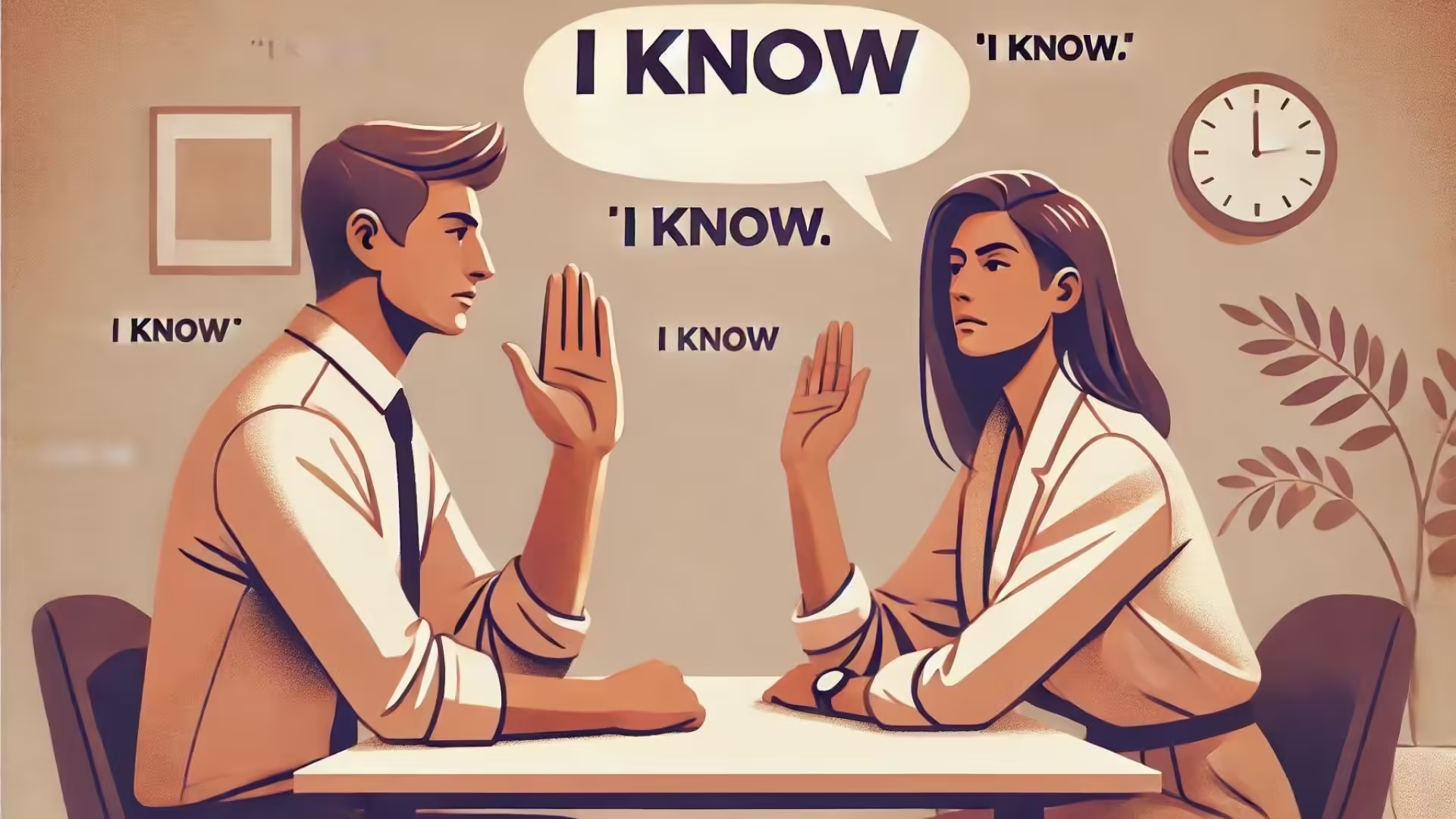Let’s talk about something that’s been bugging me lately or I may say for quite sometime now. You know that moment when you’re trying to share something with someone—a piece of advice, an interesting fact, maybe even something you learned the hard way—and before you’ve even finished your sentence, they hit you with that infamous “I know.” I mean, how does that make you feel? For me, it’s like an instant conversation killer, a brick wall of assumed knowledge. And here’s the kicker: most of the time, I’m pretty sure they don’t really know.
Now, don’t get me wrong, we live in an amazing time where information is literally at our fingertips. Want to learn about quantum physics? There’s a YouTube video for that. Want to understand the intricacies of ancient Greek philosophy? Google it, and bam, you’re a philosopher—or so you might think. The problem isn’t the access to information; it’s what we do with it. More and more, I’ve noticed that we’ve developed this habit of cutting off conversations before they even begin because we think we already have all the answers. We’ve become a society of “I know” machines, ready to prove our vast knowledge at the drop of a hat. But are we really that knowledgeable?
Let’s take a moment to consider where this “I know” reflex comes from. We’ve all been there, scrolling through our feeds, watching a quick YouTube short, or even asking an AI assistant for a quick answer to something. It’s efficient, it’s easy, and it gives us that satisfying little hit of dopamine when we feel like we’ve learned something new. But here’s the thing: consuming information in bite-sized pieces doesn’t make us experts. It might make us feel like we know more, but in reality, we’re often only scratching the surface.
Enter the Dunning-Kruger effect, that charming little cognitive bias where people with limited knowledge or competence in a domain overestimate their own ability. It’s like the more we learn, the less we realize we actually know—but the problem is that many of us don’t get past that initial stage of learning to reach that realization. We think a couple of well-curated YouTube shorts or a quick Google search puts us on the same level as someone who’s spent years studying and practicing in a particular field. Spoiler alert: it doesn’t.
This is where the habit of saying “I know” can really trip us up. When we respond with “I know” before fully listening to what someone else has to say, we’re not just shutting down the conversation—we’re shutting down our own opportunity to learn. We’re telling ourselves that we’ve already reached the pinnacle of understanding, that there’s nothing new under the sun that we could possibly gain from this interaction. And let’s be honest, that’s just not true.
Think about the last time someone tried to share something with you, whether it was a piece of advice, a life lesson, or even just a random fact. Did you really listen? Or did you mentally check out because you thought you already had it covered? It’s easy to do, especially when we’re constantly bombarded with information from all angles. But here’s the thing: truly listening to someone else isn’t just about hearing their words—it’s about being open to the possibility that they might have something valuable to offer, something you haven’t heard before, or something you need to hear again.
Listening, real listening, is a skill. It’s about being present in the moment and giving the other person the respect of your full attention. It’s about acknowledging that no matter how much you think you know, there’s always room to learn more. And sometimes, the most important things we learn aren’t from textbooks or videos or the internet—they’re from other people’s experiences, perspectives, and wisdom. But you’ll never get to that wisdom if you cut them off with “I know.”
So here’s my challenge to you: the next time you’re in a conversation and you feel the urge to say “I know,” pause. Take a breath. Listen. Really listen. And if you still feel like you know it all, consider this: maybe you don’t. Maybe there’s a nuance you missed, or a new angle you hadn’t considered. Maybe the person you’re talking to has insights that go beyond the facts and figures you picked up online.
In this age of information overload, it’s tempting to rush through conversations, to check off boxes and move on to the next thing. But let’s not lose sight of the fact that real understanding takes time, effort, and humility. It’s not about proving how much you know—it’s about being open to learning more.
So, the next time someone starts to share something with you, resist the urge to interrupt with “I know.” Instead, listen carefully, ask questions, and engage with what they’re saying. Who knows? You might just learn something new. And if not, well, at least you’ll have had a real conversation, and that’s something we could all use a bit more of these days.
In the end, it’s not about having all the answers. It’s about being open to the possibility that we don’t. And that’s where real growth begins.
Danny Ballan
Editor-in-Chief
English Plus Magazine










0 Comments